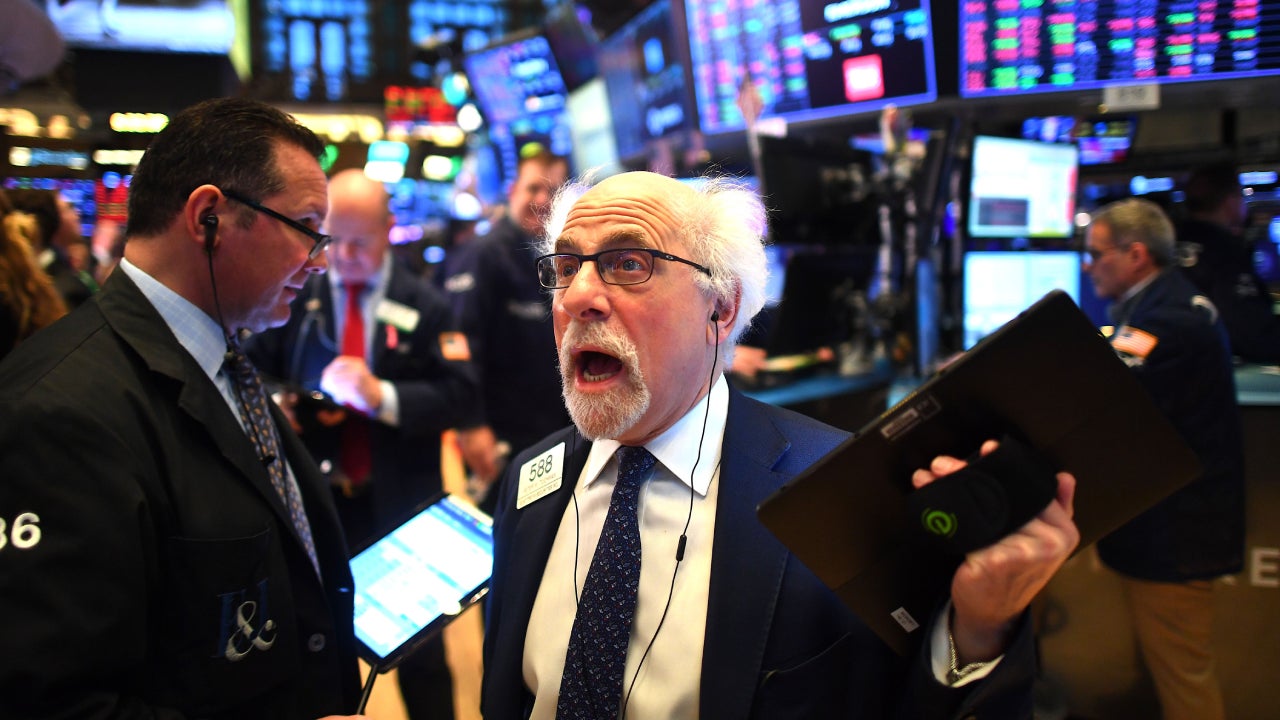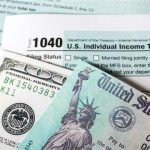JOHANNES EISELE/Getty Images
The Dow Jones Industrial Average is made up of 30 blue-chip, American companies, many of which pay dividends to their shareholders. Investing in dividend stocks is a time-tested strategy that allows investors to generate passive income from their stock holdings.
A company’s dividend yield is calculated by dividing the annual per share dividend payment by the company’s current share price.
Here are the top dividend-yielding stocks in the Dow Jones Industrial Average.
Stocks with the highest dividend yields in the Dow Jones Industrial Average
*Data below as of Jan. 9, 2025
1. Verizon Communications (VZ)
Verizon is a leader in communication and technology services. Along with AT&T and T-Mobile, they provide the majority of mobile-phone services in the U.S. Verizon generated more than $133 billion in revenue in 2023.
- Dividend yield: 6.96 percent
- Annual dividend: $2.71 per share
2. Chevron (CVX)
Chevron is an integrated energy company involved in activities that include the exploration and production of oil and natural gas. Berkshire Hathaway, led by Warren Buffett, was among Chevron’s largest shareholders as of June 2024.
- Dividend yield: 4.34 percent
- Annual dividend: $6.52
3. Amgen (AMGN)
Amgen is a biotechnology company focused on the discovery, development and manufacturing of human therapeutics. The company uses tools such as advanced human genetics to understand diseases and human biology.
- Dividend yield: 3.60 percent
- Annual dividend: $9.52
4. Johnson & Johnson (JNJ)
Johnson & Johnson develops and produces a variety of products in the health care industry. Some of its well-known brands include Band-aid, Neutrogena, Tylenol, Benadryl and more. The company was founded in 1887 and is headquartered in New Jersey.
- Dividend yield: 3.49 percent
- Annual dividend: $4.96
5. Merck (MRK)
Merck is a global healthcare company that offers prescription medicines including biologic therapies, vaccines and animal health products. The company reported more than $60 billion in revenue in 2023.
- Dividend yield: 3.24 percent
- Annual dividend: $3.24
6. Coca-Cola (KO)
The Coca-Cola Co. owns a variety of different beverage brands that it sells in more than 200 countries and territories. Its products have been sold in the U.S. since 1886 and its brands account for 2.2 billion of the estimated 64 billion servings of all beverages consumed worldwide each day.
- Dividend yield: 3.14 percent
- Annual dividend: $1.94
7. International Business Machines (IBM)
IBM is one of the largest tech companies in the U.S. and earns more than two-thirds of its revenue from software and consulting services. The Armonk, New York-based company has paid a dividend for over 100 consecutive years.
- Dividend yield: 2.99 percent
- Annual dividend: $6.68
8. Cisco Systems (CSCO)
Cisco provides a variety of networking, security and cloud solutions and generated $57.0 billion in revenue in its 2023 fiscal year. The company is very profitable and earned nearly $20 billion in operating cash flow in its 2023 fiscal year.
- Dividend yield: 2.70 percent
- Annual dividend: $1.60
9. Procter & Gamble (PG)
Procter & Gamble owns a variety of consumer goods brands that are sold in about 180 countries and territories around the world. Its brands include Tide, Bounty, Charmin, Gillette, Old Spice, Dawn, Crest and many more. The company generated more than $84 billion in revenue during its 2024 fiscal year.
- Dividend yield: 2.48 percent
- Annual dividend: $4.03
10. McDonald’s (MCD)
McDonald’s franchises and operates fast-food restaurants in more than 100 countries and had 41,822 locations at the end of 2023. The company generated about $25.5 billion in revenue during 2023.
- Dividend yield: 2.47 percent
- Annual dividend: $7.08
Editorial Disclaimer: All investors are advised to conduct their own independent research into investment strategies before making an investment decision. In addition, investors are advised that past investment product performance is no guarantee of future price appreciation.
Read the full article here
















